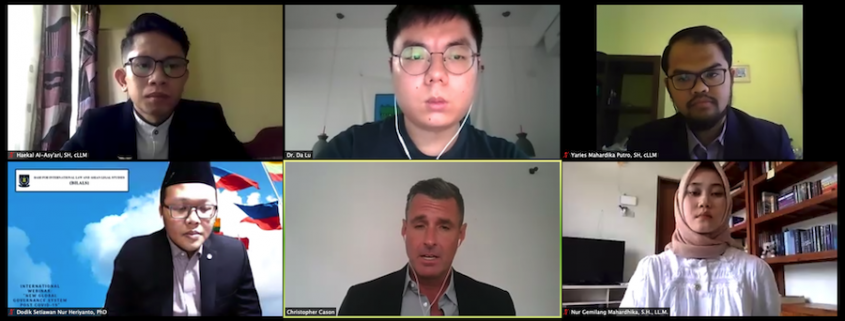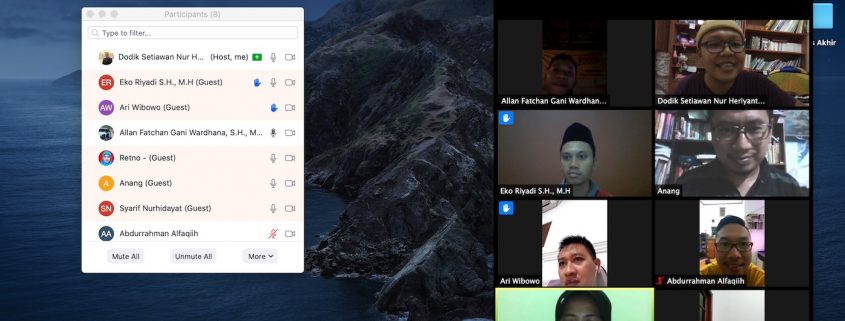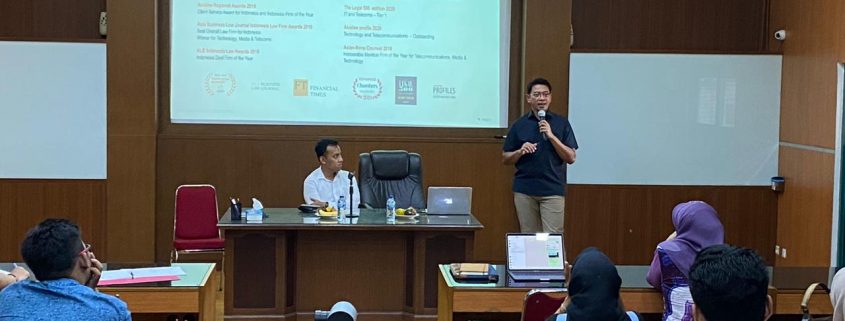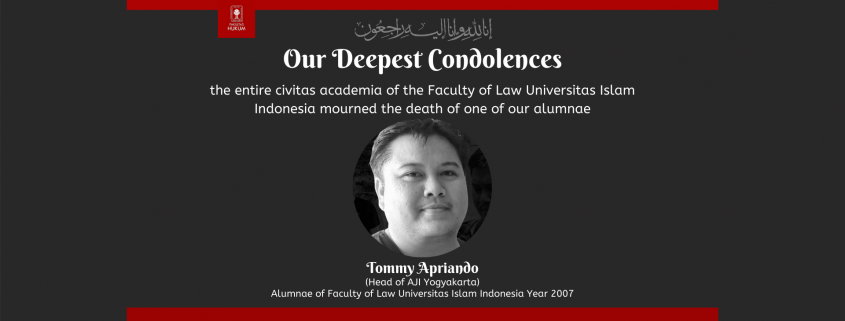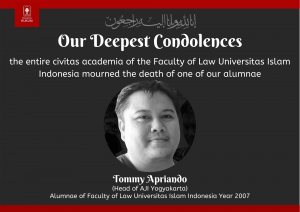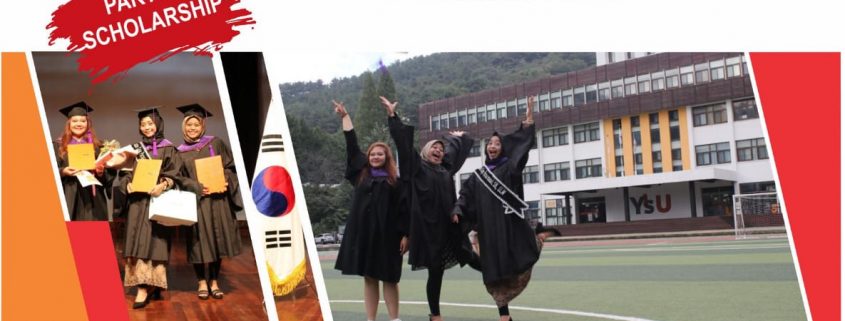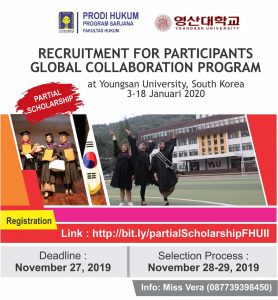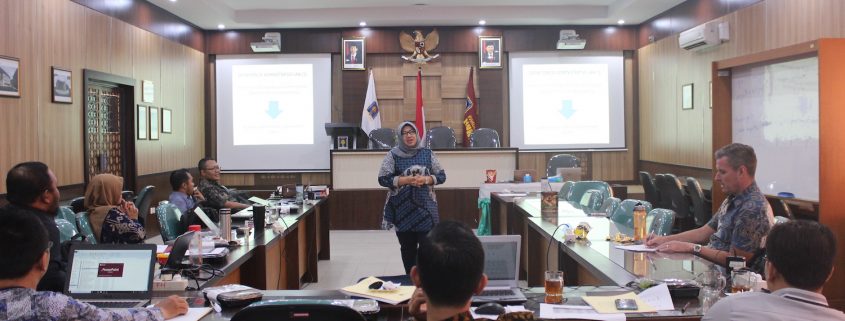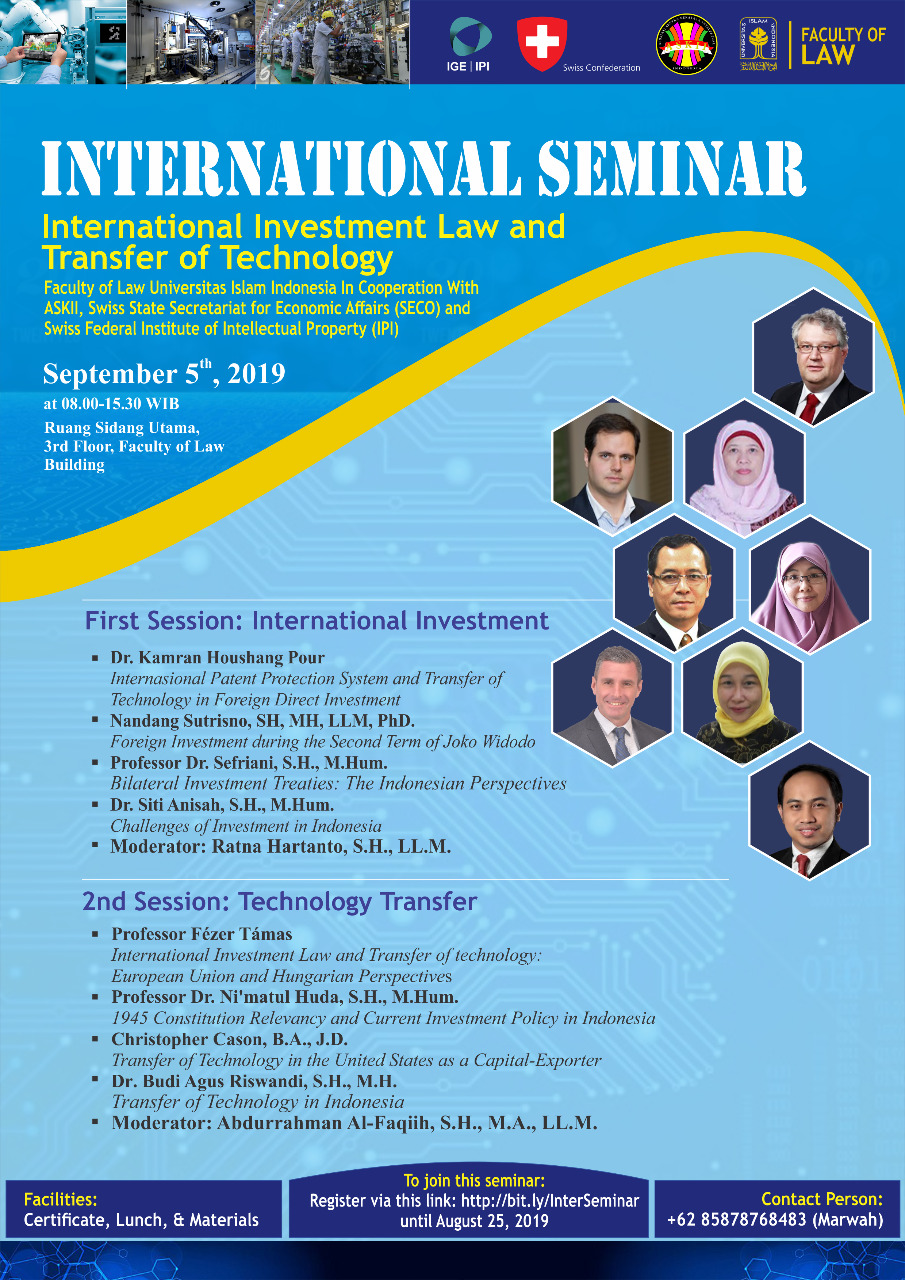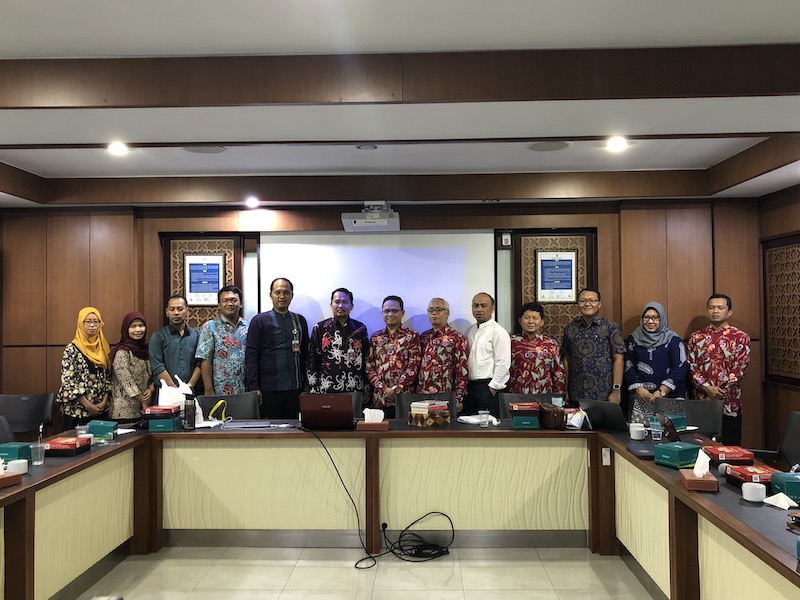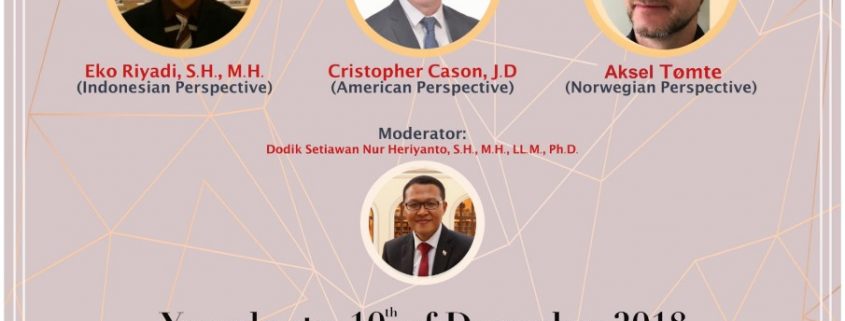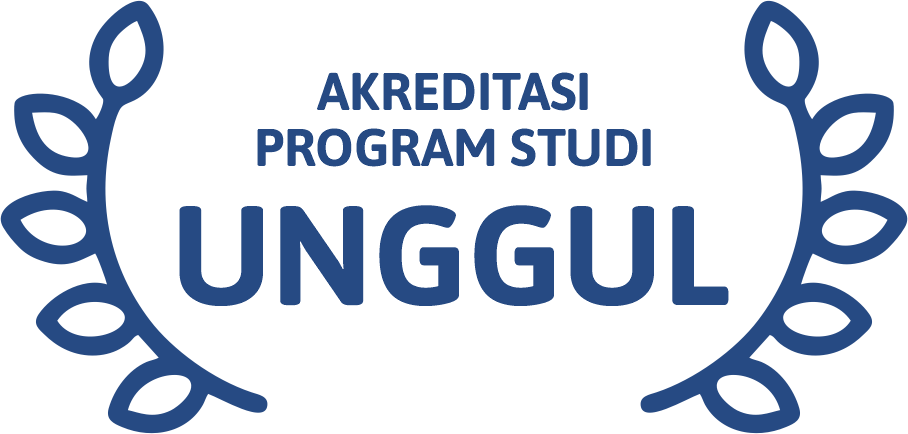Since the World Health Organization (WHO) announced its pandemic status on 11 March 2020, Coronavirus Disease 2019 (Covid-19) has become a major challenge that must be addressed and resolved by all countries in the world. The rapid spread and distributed of this virus has led to the death of a large number of infected victims. On the other hand, the impact caused by Covid-19 is like a domino effect that not only attacks one sector but almost all sectors related to the needs of humanity around the world.
Responding to the situation, the Base for International Law and ASEAN Legal Studies (BILALS) in collaboration with Faculty of Law, Universitas Islam Indonesia (UII) held an online seminar on “New Global Governance System Post-Covid-19 Pandemic” on Thursday, 14 May 2020. The seminar also invited speakers from different countries, including Dr. Da Lu (China), Cristopher Cason JD (United States), Dodik Setiawan Nur Heriyanto S.H., M.H., LL.M., Ph.D., Gemilang Nur Mahardika S.H., LL.M., and Yaries Mahardika Putro S.H. (Indonesia). The seminar, moderated by Haekal Al Asyari S.H, opened with remarks made by Dodik, as Director of BILALS. In his remarks, he said, “These conditions should not prevent us from continuing to learn and spreading benefits the community, and hopefully this seminar can bring new knowledge and experience to the wider community,” Dodik said.
As the first speaker, Dr. Da Lu presented the theme of the presentation in the form of “Chinese Perspective: Timeline of the Pandemic and WHO Communication during Post-Covid-19.” In his presentation, he explained the development of Covid-19 in China, particularly in Wuhan, where he lived. ‘Beginning on January 23, 2020, Wuhan officially adopted a lock-down policy for its citizens. This policy was adopted to break the chain of distribution of Covid-19 in Wuhan. However, the implementation of this policy has an impact on the cessation of the economic wheels in Wuhan during the lock-down period and also, from the point of view of the Constitutional, the implementation of the state of emergency is often a half-way point”.
With the spread of Covid-19 to all countries around the world, not a few countries around the world are trying to hold China liable for this situation. Such as the United States, a few time ago, the United States openly asked for compensation for the losses suffered as a result of the Covid-19 outbreak in the country. However, it is undeniably true that this stance is more politicized than the legal facts that arise. “The stance of the U.S. government is nothing more than a political stance, and if the law is examined, the evidence will not be found,” said Christopher Cason.
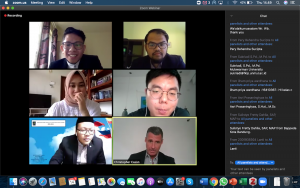
In addition, on the international trade issue, Covid-19 has an impact on international trade transactions and global investment. Restrictions and even the closure of the territory of a country have almost stopped the transaction process in these two sectors. Therefore, in order to overcome this, Gemilang suggested that “it is very necessary to take a firm stance in a situation like this. There are only two options available in this situation, that is, to keep implementing the international trade law regime with all its limitations or to create a new legal regime in the field of international trade in order to adapt to current conditions”.
As a next speaker, Yaries stated that “With the large number of infected and dead victims caused by the Covid-19 in Europe, the EU Government agreed to disburse large funds in order to prevent this case. The funds are allocated, among others, to the needs of medical equipment, support funds to Member States, funding of vaccine research and other activities to break the chain of spread of this virus in Europe, “said Yaries.
As a closing presentation, the Director of BILALS presented a presentation entitled “WHO Governance during Post-Covid-19.” He explained that “A health policy reform is needed at both the international and national levels from all aspects affected by Covid-19. Policy reforms include the imposition of sanctions, punishment and rewards for each party in order to improve compliance with the policy, increase collaboration and cooperation to prevent incidents such as this, and increase the transparency of information provided by the WHO to all its Member States so that the country’s alertness process in dealing with the similar cases may be as high as possible.’
A total of 453 registered participants came from different regions of Indonesia and abroad with different professional backgrounds, such as students, lecturers, academics, civil servants, judges, notaries and lawyers.

